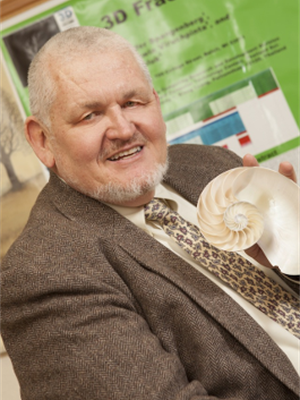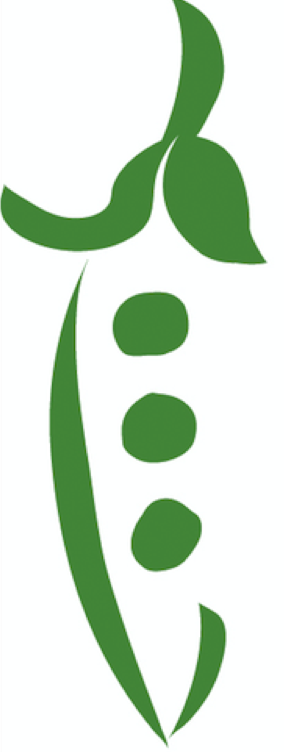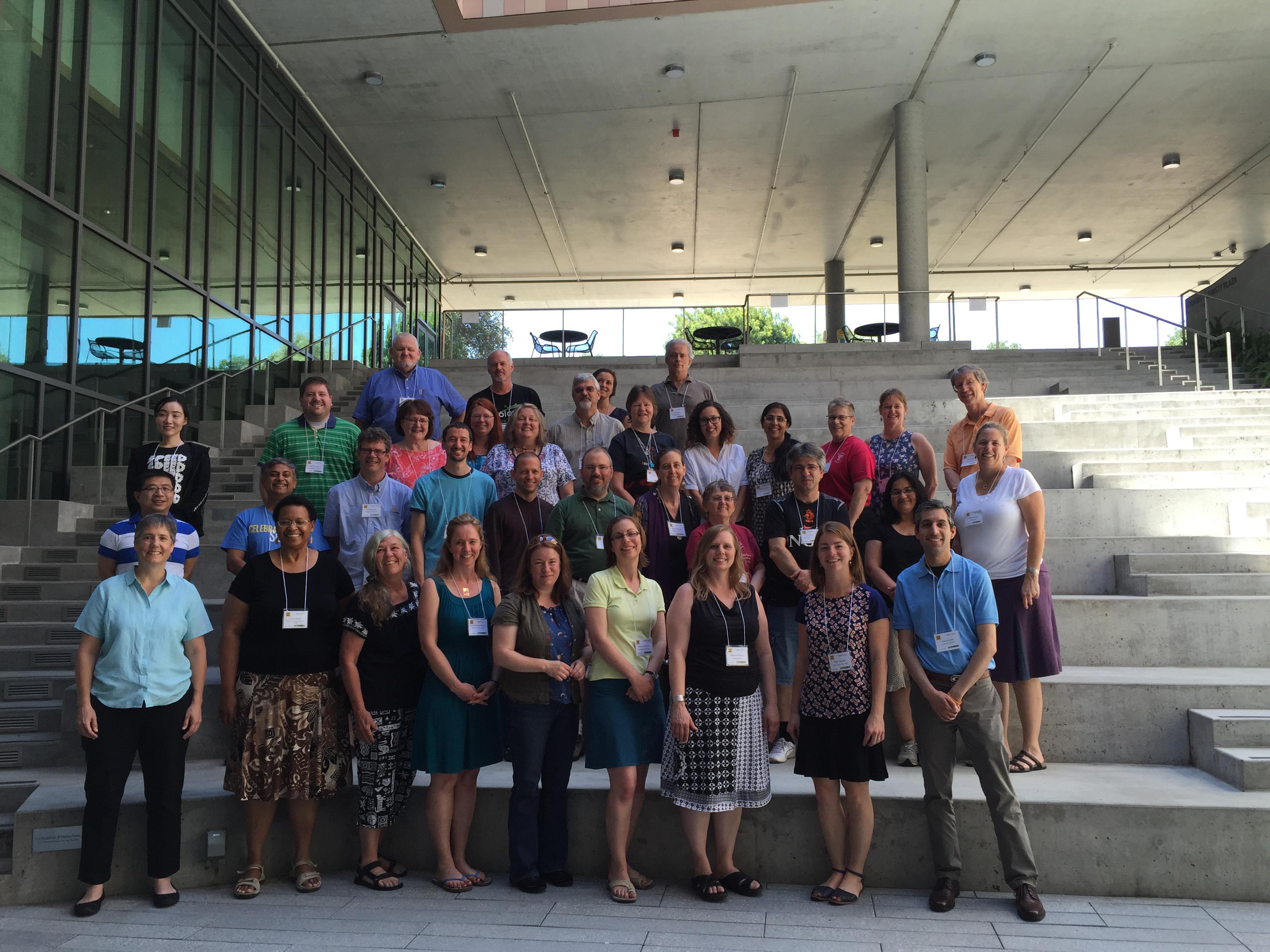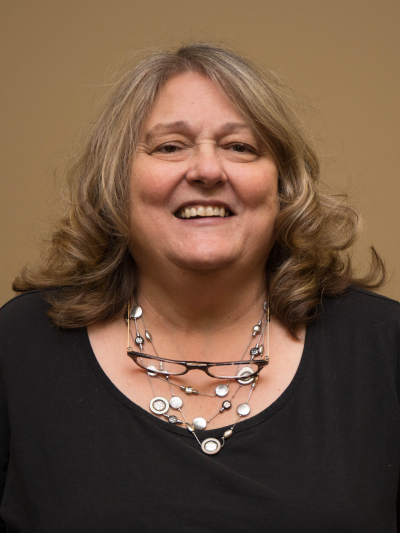
The BioQUEST Curriculum Consortium is celebrating its 35th anniversary this year! As we continue to evolve and welcome new members to our community, we thought we could take this opportunity to provide a deeper dive into BioQUEST’s history and core values. Read more below--we are so proud of where we’ve been and thrilled about where we’re heading.
BioQUEST’s Origin Story
 The idea for BioQUEST was conceived on a hike in the Torrey Pines State Natural Reserve in San Diego--on June 6, 1986 to be exact. John Jungck, PhD, a faculty member at Beloit College at the time, was attending a meeting run by the Fund for the Improvement of Postsecondary Education (FIPSE). But Jungck wasn’t in the best of spirits. He’d felt discouraged of late; the challenges and changes needed in science education seemed too big, the sage-on-the-stage model too ingrained, even as computers provided new opportunities for hands-on learning.
The idea for BioQUEST was conceived on a hike in the Torrey Pines State Natural Reserve in San Diego--on June 6, 1986 to be exact. John Jungck, PhD, a faculty member at Beloit College at the time, was attending a meeting run by the Fund for the Improvement of Postsecondary Education (FIPSE). But Jungck wasn’t in the best of spirits. He’d felt discouraged of late; the challenges and changes needed in science education seemed too big, the sage-on-the-stage model too ingrained, even as computers provided new opportunities for hands-on learning.
“People were using the computer to teach students rather than to empower students,” Jungck said.
Headed for a hike to clear his head, Jungck met another attendee at the meeting, Nils Peterson, an architect and designer of a software project that allowed students to explore the biology of the human heart. Peterson asked Jungck what changes he would want to see in biology education--and what was his dream for enacting them?
Jungck’s answer: to build a community that would really make a deep difference in education, that would change the way educators see their role in students’ learning.
As Jungck and Peterson walked through the sandstone cliffs and trails to the Pacific, the idea for BioQUEST was born. Following the lead of progressives in education theory, Jungck and Peterson wanted to encourage students to be the leaders of their own learning. They wanted to build a sharing community that believed students learn best by doing, experimenting, simulating, with teachers there to facilitate, coach, and support.
With this goal in mind, Jungck and Peterson secured initial funding and brought together a consortium of educators to develop simulation software that teachers could use to actively engage their students in their own learning. The initial BioQUEST Library focused on sharing 18 “strategic simulations” designed to help students learn long-term strategies of research. The acronym for BioQUEST--Quantitative Undergraduate Educational Simulations and Tools in Biology--reflects these initial goals. Around these tools, they built a community--of teachers, institutions, professional societies, and funders--committed to putting the best tools for learning into the students’ hands.
(pictured above: John Jungck, PhD, co-founder of BioQUEST)
The 3Ps
 Alongside and embedded in the development of the BioQUEST software modules, Jungck and Peterson articulated the pillars for BioQUEST’s educational philosophy--the 3Ps: Problem Posing, Problem Solving, and Peer Persuasion.
Alongside and embedded in the development of the BioQUEST software modules, Jungck and Peterson articulated the pillars for BioQUEST’s educational philosophy--the 3Ps: Problem Posing, Problem Solving, and Peer Persuasion.
In short, the idea is that for students to truly learn science, they need to be fully engaged in the kinds of thinking that scientists practice. Traditional science education emphasizes problem solving, but those problems are often simplified to the point where they can be solved algorithmically, and the answers are predetermined. Broadening students’ experiences to more realistically reflect the ways scientists address the sources and solutions to scientific problems provides a more accurate picture of scientific practices.
In the 3Ps model, Problem Posing engages students in finding their own research questions--ones that are not pre-posed, with predetermined answers, but those that are open-ended, interesting, significant, feasible, and devoid of bias. Problem Solving gives students the opportunity to design, navigate, and troubleshoot strategies and hypotheses and gives students a more nuanced and realistic sense of what an “answer” might look like. Peer Persuasion, essential to any scientist, gives students experience in communicating their science and convincing others of its usefulness.
At the heart of the 3Ps approach is an effort to make science education more effective, relevant, hands-on, and reflective of the actual experience of a scientist. While BioQUEST has evolved since its beginnings in 1986, the importance of these core values endure.
BioQUEST’s Evolution
While the initial funding for BioQUEST focused on developing technology, a shift occurred early on, just three or four years in. Patti Soderberg, PhD, became the first director of BioQUEST and brought with her a deep commitment to issues of social justice and equity. And Robin Greenler joined the leadership, bringing an ethos of consensus decision-making and horizontal leadership. Therefore, at a very early stage, BioQUEST became defined by its commitment to inclusivity and a valuing of every perspective, which meant that no one would be excluded from the conversation; and those who had been traditionally left out would be invited in and given a voice.
Jungck said that Soderberg and Greenler transformed BioQUEST: “We were less a technology group, and we were much more serving our community,” he said.

The centerpiece of this community became the BioQUEST summer workshop. From 1986-1991, the workshop was integral to the development of the BioQUEST Library, and in 1992, it shifted focus to helping faculty adopt, adapt, and implement the library. Over the years, it has evolved to meet the needs of educators and has been more than a professional development opportunity--it has been a place for faculty who care deeply about science education to connect and find mentorship, support each other, share ideas, and develop and implement reforms that transform the student learning experience--traditionally in biology but now more broadly in STEM. These summer workshops have been the gathering place for a community of educators, empowered by BioQUEST, to adopt a scholarly approach to teaching and learning and to change the culture of science education. (pictured above: BioQUEST at the 2015 Summer Workshop at Harvey Mudd College)
Over its 35-year history, numerous grant-funded projects and collaborations have come out of BioQUEST’s workshops and community, including work involving investigative case-based learning (ICBL), biology education at community colleges, Universal Design for Learning principles, the development of the QUBEShub infrastructure, and much more. Over 50 National Science Foundation (NSF) Awards list BioQUEST in the title or abstract, and BioQUEST-related publications and references to publications number in the hundreds.  In 2015, almost 30 years after its founding, BioQUEST was one of four organizations featured in Communities of Transformation and their Work Scaling STEM Reform (Kezar, Gehrke, 2015). Members of the community have taken national leadership positions in biology education, have been named AAAS members, and have served at and influenced the culture at the NSF.
In 2015, almost 30 years after its founding, BioQUEST was one of four organizations featured in Communities of Transformation and their Work Scaling STEM Reform (Kezar, Gehrke, 2015). Members of the community have taken national leadership positions in biology education, have been named AAAS members, and have served at and influenced the culture at the NSF.
Ethel Stanley, PhD (Executive Director 1996-2011) led the organization with an emphasis on the development of ICBL, outreach to community colleges, and international collaborations. Kristin Jenkins, PhD (Executive Director, 2011-2021) transitioned the organization from its longtime institutional home (Beloit College) and incorporated BioQUEST as a 503(c) nonprofit. 
“Becoming an independent organization was a challenge, but it has allowed us to support community growth in ways that would not have been possible in a traditional academic institution,” Jenkins said. “We were successful because BioQUEST has always been led from within the community, and many people contributed to the success of the organization.”
“You can't do it alone,” Jungck echoed. “It’s that web of funders, administrators, colleagues, professional societies, students--being open to learning from your students. It's been that confluence, the web of that community. To me, that has been crucially important.”
(pictured above: Ethel Stanley, PhD, former BioQUEST Director; Kristin Jenkins, PhD, former BioQUEST Director)
BioQUEST’s Future
Many of the foundational values of BioQUEST have not changed since the early 90s--the focus on student-centered learning, inclusivity, and the needs and voices of our community. But that community and reach is growing and evolving. With the QUBES community coming under our stewardship, we are more interdisciplinary than ever, with projects straddling the life sciences, math, physics, and chemistry. Our commitment to serving and empowering faculty from a range of institution types, from R1 research universities to community colleges to HBCUs, continues and deepens, and multiple projects aim to increase access to the most innovative, vetted, and effective teaching in STEM--whether through open educational resources, Universal Design for Learning, or inclusive teaching reforms.
Our revised mission, vision, and values articulate our goals and aims, but maybe what defines us most is our responsiveness to the needs of our community. If you haven’t already, we invite you to subscribe to our newsletter and community spotlight, join a Faculty Mentoring Network, attend a Summer Workshop, or connect with us to explore how we can help you achieve your goals.
In celebration of our 35th Anniversary, we will be sharing more about BioQUEST’s history, as well as inviting our community to share stories and reflections on what BioQUEST has meant to them. Stay tuned to our newsletter for more information.